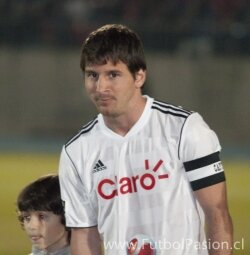Lost childhood: Is sports fame worth the trade-off?
All parents have dreams for their children. If asked what we want for our kids, most parents would reply “happiness.”
But we all have other dreams for our offspring, too. I’d love for my son to be a farmer– or perhaps the next Baryshnikov. My husband would want him to be the next Nolan Ryan or Tom T. Hall. Regardless of what we want, our son’s happiness is paramount. Seeing him fulfill his dreams would fulfill mine.
Age and reality impel most of us to amend or give up our childhood dreams, and we bid them adieu with a healthy dose of pragmatism– at least that’s what we tell ourselves. Don’t we all secretly wish they had been fulfilled?
Is it that sense of loss– of jealously, perhaps– that makes it so easy to judge Leonel Coira and his family? When earlier this month the European soccer team Real Madrid signed 7-year-old Coira, much was said about child exploitation, child abuse, and bad parenting. But not much was said about dreams.
Mary Lou Retton retired from competitive gymnastics at age 18, two years after she won the all-around gold medal at the 1984 Olympics. At 14, Nadia Comăneci was the youngest Olympic gymnastics all-around champion ever. Nadia started training with Béla Károlyi at age 7, and Retton was 8.
Every day, Comăneci and Retton were pushed to their physical limits, often with injuries and tears. At an age when most little girls are playing with dolls, gymnasts are in a gym, likely hundreds of miles away from home, and their parents pay dearly for the privilege. Many would say Nadia and Mary Lou were too young to make such a choice. Were they?
Gymnastics is an extreme sport; kids start almost in infancy or don’t start at all. But most pee-wee sports start around age 5, and we all know a child’s dreams of an athletic career can set him or her up for a grim and cutthroat way of life. It’s a blessing no child can comprehend the upcoming sacrifice and struggle it will take to make a dream come true.
My 11-year old cousin has always loved soccer. He plays all year and attends soccer camps as far away as Arkansas and Texas; he dreams of playing for UVA. Once he lost a practice ball and nearly had a panic attack. The practice ball was a necessity because he’s playing on an advanced team, and as the youngest, he has to stand out or be cut. Losing his ball was a disaster. “I have to practice,” he said. “I have to, I have to!” Childhood dreams come at a cost.
Real Madrid isn’t paying Coira any money; the contract requires him to play exclusively with Real Madrid for one year when he’s older. Until then, he’ll train with the developmental team.
“My dream is to meet [Lionel] Messi, play with the first division with Madrid and for Argentina in the World Cup,” Coira said.
Is it right for my cousin to practice until he cries? Is it wrong to send a daughter a thousand miles away if she wants to be the next Nadia Comăneci? Does Leonel Coira have saints for parents– or abusers? From a jaded and pragmatic perspective, it seems easy to judge. But perhaps we’re focusing on what we would have done if we were the Coiras, instead of what would we have wanted the Coiras to do if we were Leonel.
~
Juanita lives on a farm in Charlotte County with her husband, son and many dogs.
